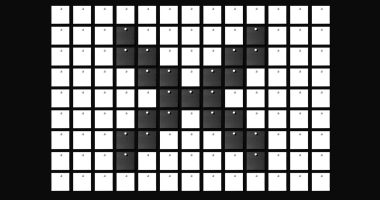The Sun is key to our survival but it can also wreak havoc on the technology we all depend on so heavily in modern times.
One of the biggest threats are solar flares, which are huge explosions in the Sun’s atmosphere that blast a mass of dangerous energy our way.
Fortunately, Earth’s magnetic shield and atmosphere protects us from direct harm but if a major one hits it could affect many of the things we use on a daily basis.
“They make a hydrogen bomb look like fireworks,” Professor Huw Morgan from Aberystwyth University described solar flares.
“When they explode they’re pretty dangerous, they blast out a lot of hard radiation into space and of course even though we’re quite some distance on Earth it can cause problems.”
For developed countries like the UK and US, detection kit is getting better all the time so we can prepare.


But no one really knows how bad it could be until one actually happens.
So what might be the impact?
Cancelled flights
We could expect flight disruption if a major solar flare strikes.
Most read in Tech
First of all, GPS satellites may go down, making it impossible for pilots to fly safely – though protective tech has improved.
“GPS satellites are very well shielded to make sure that they don’t have big effects on there and also carry monitors to look for changes in the Earth’s environment,” Professor Andrew Coates from University College London said.
But flights that go into high latitudes will have to be grounded, as it could expose everyone onboard to harmful levels of radiation.
“So flights to California from the UK for example will be cancelled because of the radiation danger,” Professor Morgan added.
“The transport, railways, they will have warnings in place.”
Power grid failure
Quebec, Canada, suffered a massive power outage in the late ’80s after a geomagnetic storm, leaving millions without electricity.
Something similar could happen today – though space storm forecasting technology means experts can hopefully kickstart measures to lessen the possible effects.
“The power grids will react, they do things in the electrical sub-stations that helps not fry the systems,” Professor Morgan said.
Disruption to communications
And it’s not just electricity supplies that would be at risk, but also everything we use for communication.
That means making phone calls and the internet.
Recent research says that in extreme cases, Geomagnetically Induced Currents (GIC) could damage long-distance cables used for the internet, particular submarine cables that connect continents.
“You would effectively lose internet and mobile phone communication, probably for a day or two,” Professor Coates said.
“People have estimated the amount of money lost, transactions, all that type of thing, the wheels of commerce, the internet, etc, all depends on good communications and so if you suddenly lose that it could potentially be devastating.”
And it’s not just everything on the ground we have to think about
Astronauts on the International Space Station (ISS) are at severe risk of exposure to dangerous rays.
Thankfully, the station has a small safe space they can all shelter from it, which is why good space weather detection systems are important.
But it’s not all bad…
One of the nicer things we can expect is Northern Lights just about everywhere, with loads of bright aurorae on display.


A rep for the Met Office told The Sun: “The Met Office is one of a handful of centres in the world who are monitoring the Sun’s activity 365 days a year, 24 hours a day.
“Our forecasts provide government and industry with valuable time to help mitigate against the worst impacts of solar flares or coronal mass ejections.”
Find out more about science
Want to know more about the weird and wonderful world of science? From the Moon to the human body, we have you covered…
We pay for your stories! Do you have a story for The Sun Online Tech & Science team? Email us at [email protected]
This post first appeared on Thesun.co.uk











